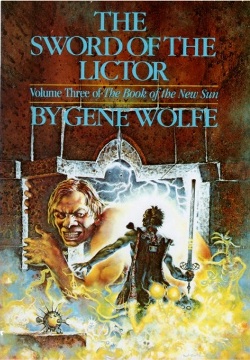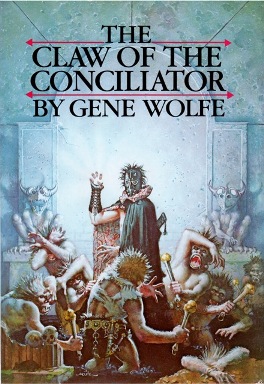I’ve decided that the only good science fiction novel is one that can never, under any circumstances, be made into a movie worth watching. Such cinematic capacity just doesn’t exist. Genre science fiction books are too weird, too transgressive, and too cerebral while also demanding too much in the way of expensive special effects in order to convert them to the big screen. Perhaps some day when dazzlingly realistic special effects can be produced practically for free you’ll get weirdo art movies with visual effects as captivating as those in /Interstellar/ or /Star Wars/. But not now.
Conversely, if you’ve ever seen a good science fiction movie, it was probably not based on an award winning science fiction novel. They’ve tried, of course: Dune, Starship Troopers, and a few other awkward viewing experiences. And they’ve failed.
Why do I say all this? Well, this is a review of Gene Wolfe's /The Citadel of the Autarch/ which will never, ever, ever be made into a movie. And that’s a good thing. The games that the author plays can only be done with written language. There were times while reading the book were I said to myself, “No way, Mr. Wolfe. There is no way you are going to be able to do what you’ve just told me you are going to do.” Then he goes and does it with such brilliance that it took me out of the story marvelling at his imagination and craft.
Is it a good thing when an author writes so well that you stop thinking about the story? Now that is not the only problem with the book. There continues to be the sense that he tries a bit to hard to align with genre conventions. At one point in the book he seems to have run into a narrative dead end and, quite literally, plucks his protagonist out of the path he’s on and compels him along the path he’s supposed to follow, all while having characters comment obliquely on the failings of “deus ex machina” narrative tropes.
Though the closing chapters drift into philosophical abstraction, and there is not much in the way of resolution, the story is powerfully and beautifully written. And it’s so chocked full of ideas that I feel a slight compulsion to go back to volume one and start reading /The Book of the New Sun/ all over again.





